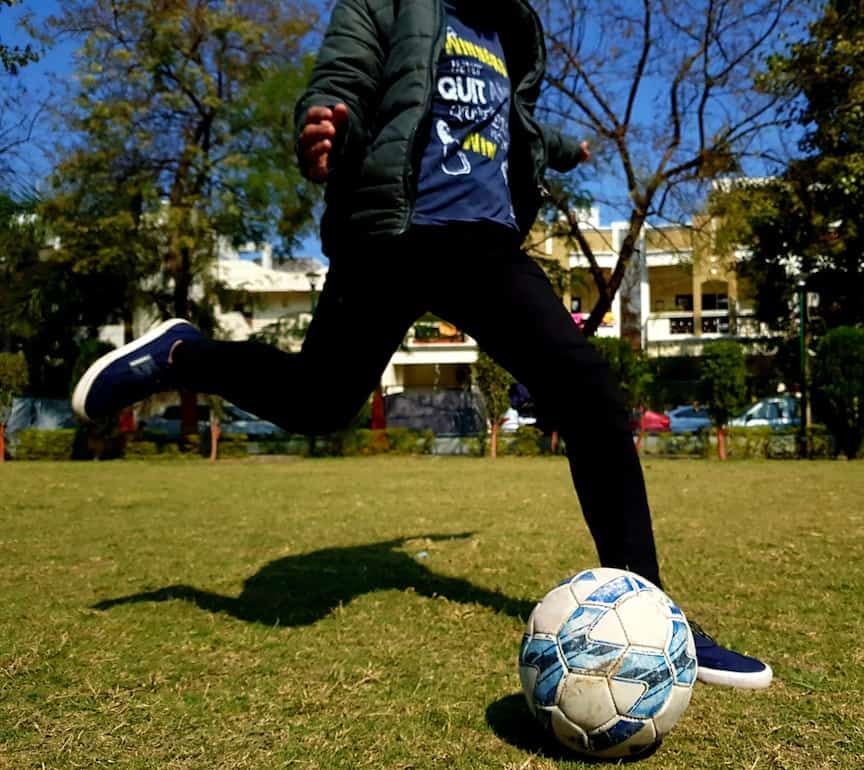As spring quickly approaches, athletes are getting ready to hang their winter attire and embrace the joys of soccer season. Unfortunately, it is also the time when seasonal allergies spring into action. Based on a study of recreational runners, only 0.5% out of the 42% with reported spring allergies took prescription medication before exercise, according to the Allergy & Asthma Center. This is because the majority of athletes were concerned about the negative side effects on sports performance. So, while medication may not always be the right answer for athletes, here’s how soccer players can survive the spring allergy season.
How to Survive Spring Allergies During Soccer Training
Know What Triggers Your Allergies
Tree pollen and grass in the field can spark allergies in any player. In fact, Italian player Mario Balotelli had to leave the field mid-game due to a severe allergic reaction. Some of the most common things athletes are allergic to are airborne, including pollen found in plants, dust mites around the home, mold found in poorly ventilated areas like sewers, and pet dander. Other allergen triggers susceptible to athletes include insects, chemicals from pesticides on lawns, and even dyes from jerseys and sports gear.
Visit an Allergist
Seasonal spring allergies are fairly easy to identify, while others are less obvious. If you are experiencing cold-like symptoms that last longer than a week or notice a pattern every year, now’s the time to visit your doctor. After an allergy is diagnosed, they will prescribe medicine based on your allergy tests.
Practice Nasal Rinsing After Every Field Day
What sounds like a tedious task isn’t as hard as it may be. Saline rinses help keep your nose clear of foreign irritants. If you are already experiencing signs of nasal congestion, a simple sinus rinse can help alleviate the symptoms and reduce the onset of an allergic rash. What’s more, you can practice this daily and after every practice out on the field.
Browse more popular posts from Complete Soccer Guide:
- 3 Out-of-Training Habits that will Improve your Soccer Performance
- Exercise for Soccer Players Joints Health
- Blending Up Some Optimal Soccer Nutrition
Practice good hygiene
Take a shower as soon as you arrive home. Not only will rinsing off before bedtime prevent the spread of pollen from getting onto your clothes and furniture, it will help keep you from breathing them in at night. In fact, allergy symptoms worsen during nighttime. To prevent this, a warm, steamy shower can help clear your nasal passages and make it easier to breathe. Not to mention, try to leave your gear outside and away from living spaces.
Consider Holistic Treatments
Various studies suggest that acupuncture can be just as effective, if not more, than allergy medication. In fact, the Institute for Social Medicine reveals that there is evidence to support acupuncture as a cost-effective and beneficial method as an additional treatment for seasonal allergies. Another great alternative treatment is to try Butterbur.
A specific Butterbur extract called Ze 339 was proven to be as effective as the popular antihistamine drug in controlling the onset of hay fever. Without the traditional side effects of drowsiness, the American Academy of Allergy, Asthma, and Immunology was said to have approved butterbur’s effectiveness in quelling outdoor allergies.
Without proper guidance, you may not be able to determine the actual triggers of your spring allergies. Set an appointment with your allergist for a skin test and determine the best plan to avoid them on and off the soccer field.


My daughter loves to play soccer, but she always struggles in the spring because her allergies make it harder for her to breathe. Thanks for mentioning that if you notice a pattern where this happens at the same time every year, it can be smart to visit an allergist. I’ll have to look into making an appointment for her because I think it would really help her as a player to not have to worry about it as much.
Nice
Allergies are your child’s immune system reaction to substances it believes are invaders, such as dust, food, and grass. When they contact the allergen, they produce antibodies that seek to destroy it by fighting it off.